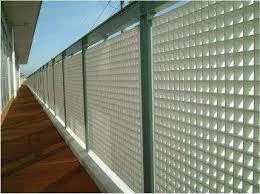
-
 Afrikaans
Afrikaans -
 Albanian
Albanian -
 Amharic
Amharic -
 Arabic
Arabic -
 Armenian
Armenian -
 Azerbaijani
Azerbaijani -
 Basque
Basque -
 Belarusian
Belarusian -
 Bengali
Bengali -
 Bosnian
Bosnian -
 Bulgarian
Bulgarian -
 Catalan
Catalan -
 Cebuano
Cebuano -
 China
China -
 China (Taiwan)
China (Taiwan) -
 Corsican
Corsican -
 Croatian
Croatian -
 Czech
Czech -
 Danish
Danish -
 Dutch
Dutch -
 English
English -
 Esperanto
Esperanto -
 Estonian
Estonian -
 Finnish
Finnish -
 French
French -
 Frisian
Frisian -
 Galician
Galician -
 Georgian
Georgian -
 German
German -
 Greek
Greek -
 Gujarati
Gujarati -
 Haitian Creole
Haitian Creole -
 hausa
hausa -
 hawaiian
hawaiian -
 Hebrew
Hebrew -
 Hindi
Hindi -
 Miao
Miao -
 Hungarian
Hungarian -
 Icelandic
Icelandic -
 igbo
igbo -
 Indonesian
Indonesian -
 irish
irish -
 Italian
Italian -
 Japanese
Japanese -
 Javanese
Javanese -
 Kannada
Kannada -
 kazakh
kazakh -
 Khmer
Khmer -
 Rwandese
Rwandese -
 Korean
Korean -
 Kurdish
Kurdish -
 Kyrgyz
Kyrgyz -
 Lao
Lao -
 Latin
Latin -
 Latvian
Latvian -
 Lithuanian
Lithuanian -
 Luxembourgish
Luxembourgish -
 Macedonian
Macedonian -
 Malgashi
Malgashi -
 Malay
Malay -
 Malayalam
Malayalam -
 Maltese
Maltese -
 Maori
Maori -
 Marathi
Marathi -
 Mongolian
Mongolian -
 Myanmar
Myanmar -
 Nepali
Nepali -
 Norwegian
Norwegian -
 Norwegian
Norwegian -
 Occitan
Occitan -
 Pashto
Pashto -
 Persian
Persian -
 Polish
Polish -
 Portuguese
Portuguese -
 Punjabi
Punjabi -
 Romanian
Romanian -
 Russian
Russian -
 Samoan
Samoan -
 Scottish Gaelic
Scottish Gaelic -
 Serbian
Serbian -
 Sesotho
Sesotho -
 Shona
Shona -
 Sindhi
Sindhi -
 Sinhala
Sinhala -
 Slovak
Slovak -
 Slovenian
Slovenian -
 Somali
Somali -
 Spanish
Spanish -
 Sundanese
Sundanese -
 Swahili
Swahili -
 Swedish
Swedish -
 Tagalog
Tagalog -
 Tajik
Tajik -
 Tamil
Tamil -
 Tatar
Tatar -
 Telugu
Telugu -
 Thai
Thai -
 Turkish
Turkish -
 Turkmen
Turkmen -
 Ukrainian
Ukrainian -
 Urdu
Urdu -
 Uighur
Uighur -
 Uzbek
Uzbek -
 Vietnamese
Vietnamese -
 Welsh
Welsh -
 Bantu
Bantu -
 Yiddish
Yiddish -
 Yoruba
Yoruba -
 Zulu
Zulu
Understanding FRP Blind Flanges for Industrial Applications and Benefits
Understanding FRP Blind Flanges Applications and Benefits
Fiberglass Reinforced Polymer (FRP) blind flanges have gained significant traction in various industries owing to their unique properties and advantages. These flanges are crucial components in piping systems, serving as a termination point for pipelines when service is not required or when isolating sections for maintenance or repair. This article delves into the applications and benefits of FRP blind flanges.
Understanding FRP Blind Flanges Applications and Benefits
One of the most significant advantages of FRP blind flanges is their exceptional corrosion resistance. Unlike metal flanges, which are susceptible to rust and degradation, FRP materials withstand harsh chemical environments, making them ideal for use in industries such as chemical processing, wastewater treatment, and marine applications. This resistance to corrosion extends the lifespan of piping systems, thereby minimizing maintenance and replacement costs over time.
frp blind flange

In addition to corrosion resistance, FRP blind flanges offer excellent thermal insulation properties. This feature helps in reducing heat loss or gain, which is particularly important in applications that involve transporting hot or cold fluids. The insulating properties contribute to overall energy efficiency, which can result in operational cost savings.
Furthermore, the inherent non-conductive nature of FRP materials provides additional safety benefits. In environments where electrical insulation is necessary, using FRP blind flanges reduces the risk of electrical hazards associated with metal flanges. This characteristic is especially significant in areas prone to lightning strikes or where equipment is sensitive to electrical interference.
When it comes to installation, FRP blind flanges are straightforward to work with. They can be designed to various specifications and sizes, catering to the specific requirements of a project. The customization aspect ensures that they can fit seamlessly into any existing piping system without the need for extensive modifications.
In conclusion, FRP blind flanges are an innovative solution that offers numerous benefits over traditional metal alternatives. Their lightweight nature, exceptional corrosion resistance, thermal insulation properties, and non-conductive characteristics make them an ideal choice for various industrial applications. As industries continue to seek more efficient and durable materials, FRP blind flanges will undoubtedly play a pivotal role in shaping the future of piping systems.









